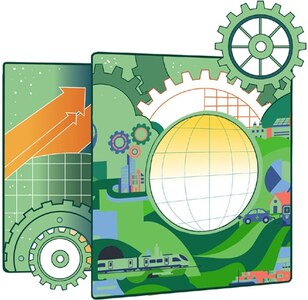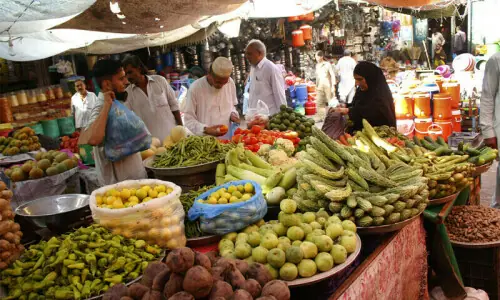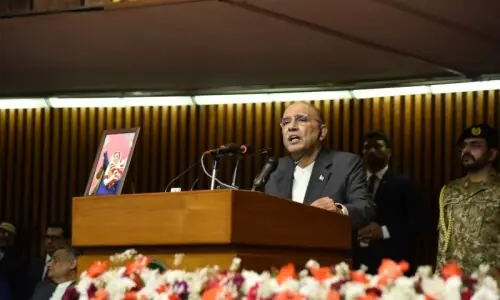SOWETO (South Africa): It is Saturday in Soweto and Aids-ridden South Africa’s biggest township is geared up for its foremost weekend activity: funerals.
Traffic police officers are dispatched en masse to the major streets where the sheer number of funeral processions would render chaos if one had to rely on traffic lights alone.
“Nowadays young people are dying like flies,” reflects 27-year-old Modise Selebogo as the family of a close friend throws soil on the grave at Avalon Cemetery, Soweto’s biggest burial ground.
Music from another funeral not 10 feet away wafts over to intersperse with singing at this graveside, where a young male victim of the AIDS pandemic joins thousands of others below the soil.
Scores of freshly covered mounds creep towards the edge of the cemetery where many heroes of South Africa’s liberation struggle were buried and several freshly-dug graves wait for funerals later in the day.
South Africa, which recent United Nations’ data say has the world’s worst rate of HIV sufferers, is experiencing soaring death rates — mostly among young people — resulting in overcrowded cemeteries and weekends spent attending funerals.
These funerals are good business for the hundreds of burial companies that advertise on walls lining the streets, with the graveside ceremony over in a matter of minutes as others wait in line.
“Nowadays the tents have to go somewhere else and the buses also. They have to be somewhere at another funeral. The hearse also,” says Selebogo.
About 45 kilometres south of Johannesburg lies South Africa’s biggest informal settlement, Orange Farm, where circumcision studies were first found to decrease risk of being infected with HIV.
Here Reverend Gijimane Radebe who has worked at the St Augustine parish for four years, can attest to the dreadful impact AIDS has had on the community, as well as himself.
“It’s killing young people terribly. I have buried almost every week, young people between the ages of 18 and 40,” he said.
“When you go around in churches you find priests talking about burying so many young people in the community.”
He said he and other pastors were regularly debriefed by the diocese “because they know the stress we are working under. It affects you sometimes”.
In African culture a funeral is a big occasion, necessitating the slaughter of a cow and the best coffin and after-burial banquet money can buy.
The cruel extent of the AIDS pandemic means that families may still be reeling from the death of one loved one when they have to bury another.
“I have encouraged our parishioners not to spend a lot on funerals. In the African way we have to slaughter a cow and prepare food — you end up spending about $3,000,” said Radebe.
“In other families people are dying in numbers and it’s hard to bury them all.”
However while some could not be spared the embarrassment of a pauper’s funeral, having to borrow money from other members of the congregation, most could not be dissuaded from sending their family members off in style.
“People, they will tell you: ‘What will my neighbours say?’ People end up being in debt for something they could have avoided.”
South Africa has some 5.5 million people out of a population of 48 million living with HIV, and a recent report by the Institute of Race Relations showed how the pandemic has affected the country.
“Deaths in the 30-34 age group increased by 212 per cent between the years of 1997 and 2005,” the report said.
While AIDS was not a cause of death that could be written on a death certificate the report found deaths due to tuberculosis and pneumonia suggest many of these deaths “have an HIV component”.
Orange Farm resident Lucy Skosana, 46, a domestic worker in Johannesburg, notes how times have changed.
“When I grew up we never used to go to funerals,” she says, adding that now, she could attend several funerals on any given Saturday.
At Avalon cemetery there are between 250 and 275 funerals a week, and the City of Johannesburg is having to explore other options, including the opening of new cemeteries that would see the country’s hub through another 100 years.
Trying to get people to cremate their family members, which is not considered customary in African culture, has proved “a challenge,” says Alan Buff, technical support specialist for Johannesburg City Parks.
He said the city was currently providing options for families to buy a burial space and for a reduced cost to bury a second or third person in the same grave.
“It is not unusual, they do it in the United Kingdom. It saves a lot of space.”
However Skosana balks at this idea saying people believed “if I have been buried on top of my grandmother she will ask ‘what do you want here on top of me?’”—AFP






























